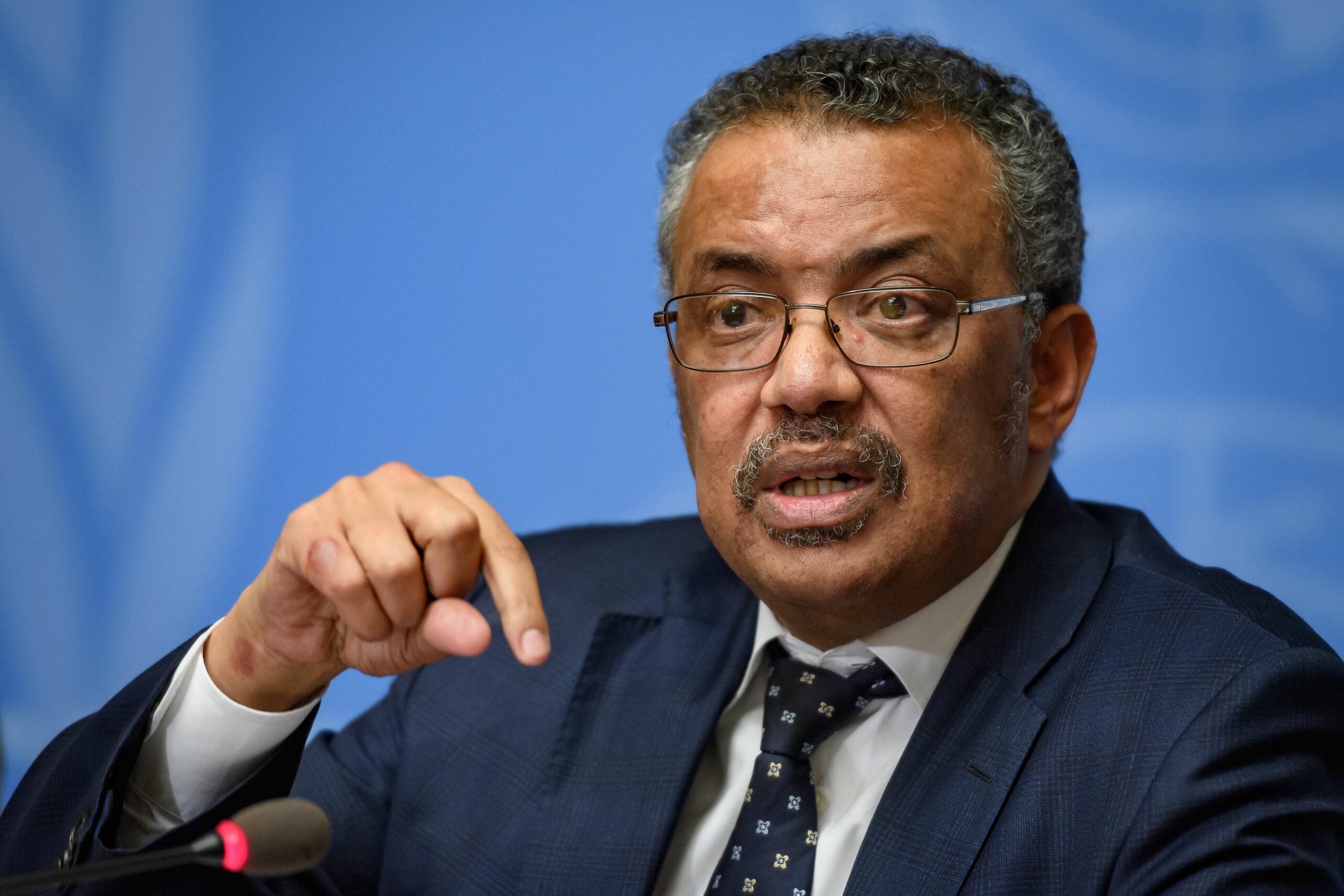Again WHO stops use of hydroxychloroquine on COVID-19 patients
The World Health Organisation (WHO) has said it has discontinued the use of hydroxychloroquine and lopinavir/ritonavir in its global trial for the treatment of COVID-19 as recommended by the Solidarity Trial’s International Steering Committee. In a statement posted on its website, the UN health agency stated that the Solidarity Trial was established by WHO to […]

DG WHO
The World Health Organisation (WHO) has said it has discontinued the use of hydroxychloroquine and lopinavir/ritonavir in its global trial for the treatment of COVID-19 as recommended by the Solidarity Trial’s International Steering Committee.
In a statement posted on its website, the UN health agency stated that the Solidarity Trial was established by WHO to find an effective COVID-19 treatment for hospitalised patients.
- WHO to resume trial of hydroxychloroquine on COVID-19 patients
- US revokes use of hydroxychloroquine to cure COVID-19
“The committee formulated the recommendation in light of the evidence for hydroxychloroquine vs standard-of-care and for lopinavir/ritonavir vs standard-of-care from the Solidarity trial interim results.
“The trial interim results are from a review of the evidence from all trials presented at the July 1 to July 2, WHO Summit on COVID-19 research and innovation.
“These interim trial results show that hydroxychloroquine and lopinavir/ritonavir produce little or no reduction in the mortality of hospitalised COVID-19 patients when compared to standard of care.
“Solidarity trial investigators will interrupt the trials with immediate effect,’’ the statement added.
According to the statement, for each of the drugs, the interim results do not provide solid evidence of increased mortality.
“There were, however, some associated safety signals in the clinical laboratory findings of the add-on Discovery trial, a participant in the Solidarity trial.
“These will also be reported in the peer-reviewed publication.
“This decision applies only to the conduct of the Solidarity trial in hospitalised patients and does not affect the possible evaluation in other studies of hydroxychloroquine or lopinavir/ritonavir in non-hospitalised patients or as pre- or post-exposure prophylaxis for COVID-19.
“The interim Solidarity results are now being readied for peer-reviewed publication.’’
WHO’s earlier announcements
WHO had announced the resumption of its trial of hydroxychloroquine for the treatment of coronavirus (COVID-19) patients on June 4.
Its Director-General said the hydroxychloroquine section of WHO’s Solidarity Trial could resume after being paused temporarily on May 25.
The trial’s Data Safety and Monitoring Committee had halted the study as a precaution in response to safety concerns raised by an observational study published in the Lancet.
Ghebreyesus said the Data Safety Monitoring Board’s review had been completed.
“Last week, the Executive Group of the Solidarity Trial decided to implement a temporary pause of the hydroxychloroquine arm of the trial, because of concerns raised about the safety of the drug.
“This decision was taken as a precaution while the safety data were reviewed.
“The Data Safety and Monitoring Committee of the Solidarity Trial has been reviewing the data.
“On the basis of available mortality data, the members of the committee recommended that there are no reasons to modify the trial protocol.
“The Executive Group received this recommendation and endorsed the continuation of all arms of the Solidarity Trial, including hydroxychloroquine.
“The Executive Group will communicate with the principal investigators in the trial about resuming the hydroxychloroquine arm,’’ he had said.
Nigeria’s position
Nigeria had, on May 27, declared that it would continue with hydroxychloroquine clinical trials on COVID-19 patients.
Prof. Mojisola Adeyeye, the Director-General of National Agency for Food and Drug Administration and Control (NAFDAC), said the country would continue with the drug.
She said this would be in spite of the initial warning by WHO to discontinue using it.
“I do not know the data they’re looking at, whether it’s from the Caucasian population or from the African population.
“If the data they’re looking at, and the reason for suspending the trials, is from the Caucasian population, then it may be justified.
“But I don’t think we have data from the African population yet, because our genetic make-up is different.
“If medical doctors, research scientists, pharmacists and herbal experts work together, we should conclude the clinical trial in three to four months.
“The narrative may change afterwards.
“But for now, we believe in hydroxychloroquine,” she had said.
(NAN)
